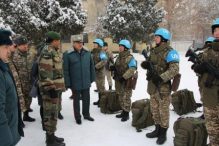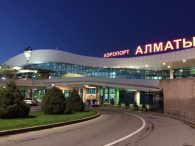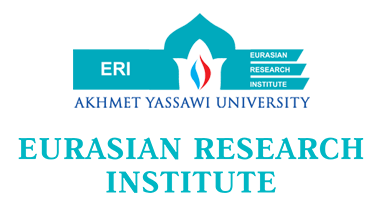Kazakhstan Sends Peacekeepers to Lebanon

On August 21, 2018, the governments of Kazakhstan and India represented by Kazakh Deputy Minister of Defense Lieutenant-General Talgat Mukhtarov and Indian Ambassador Extraordinary and Plenipotentiary Prabhat Kumar, respectively, signed a memorandum of understanding on the joint deployment of the Kazakh peacekeeping contingent as part of the Indian battalion in […]
The Third Quarter Marks the End of Russia’s Expansionary Cycle

The latest statistics by the Federal State Statistics Service of Russia (Rosstat) [1] reveals a deceleration of the real disposable income[1] (RDI) growth. In August of 2018, the RDI growth turned negative for the first time measured in month-to-month terms showing a 0.9% decrease and in September, it reached negative 1.5%. […]
Russia’s Recent Military Activity in The Caspian Region

Since the announcement of the decision to relocate the Russian Caspian flotilla from Astrakhan to the new Caspian deep-water seaport in the city of Kaspiysk located 18 kilometers southeast of Makhachkala in Dagestan in April 2018, Russia’s Defense Minister clearly demonstrated its intention to focus on the further strengthening of […]
Who is the Main Person at the University?

The main person in the education system, for whom universities are functioning, lectures are being prepared, textbooks and teaching and methodical complexes are being written, the education system is being invested and commercialized, is, of course, a student. However, in the process of managing the system as a whole, conducting […]
Potential Consequences of the U.S. Withdrawal from the JCPOA

On May 8, 2018, U.S. President Donald Trump announced his decision to end the extension of waivers on nuclear sanctions against Iran, in effect, withdrawing from the Joint Comprehensive Plan of Action (JCPOA), almost a week before the deadline. Under the Iran Nuclear Agreement Review Act, passed by the U.S. […]
New Resource Base for the Southern Gas Corridor

In the early May 2018, Azerbaijani officials announced that the commissioning ceremony for the Trans-Anatolian Pipeline (TANAP) will be held on June 19, 2018. It was initially planned that the ceremony would take place in the first week of July, but, due to Turkey’s snap parliamentary and presidential elections planned […]
Analyzing the Effects of Free Trade Agreement between EEU and Iran for Kazakhstan

On May 17 of 2018, an interim agreement leading to the formation of a free trade area (FTA) between the Eurasian Economic Union (EEU) and the Islamic Republic of Iran was signed within the framework of the Astana Economic Forum. The agreement was signed by Chairman of the Board of […]
The Russian Navy in the Caspian Sea: a New Chapter

Currently, the Russian Caspian flotilla is the largest and most powerful naval unit in the Caspian Sea. Since 2002, Moscow has consistently implemented the strategy of technical re-equipment and reorganization of its naval forces. As a result, the Caspian flotilla has the largest number of warships with modern on-board weaponry. […]
Prospects for the U.S.-North Korean Summit

On March 8, 2018, following the talks with U.S. President Donald Trump at the White House, Chung Eui-yong, South Korean President’s national security advisor, announced the acceptance by Trump of the proposal by North Korean Leader Kim Jong-un to hold the U.S.-North Korean Summit. A day later this was also […]
Aviation in Kazakhstan: an Economic View

One of the distinct features of the process of globalization of the world economy is the diminishing role of distance, which is becoming less relevant thanks to ever increasing efficiency and decreasing costs of traveling around the world. Air traffic plays the key role in this process connecting people and […]
